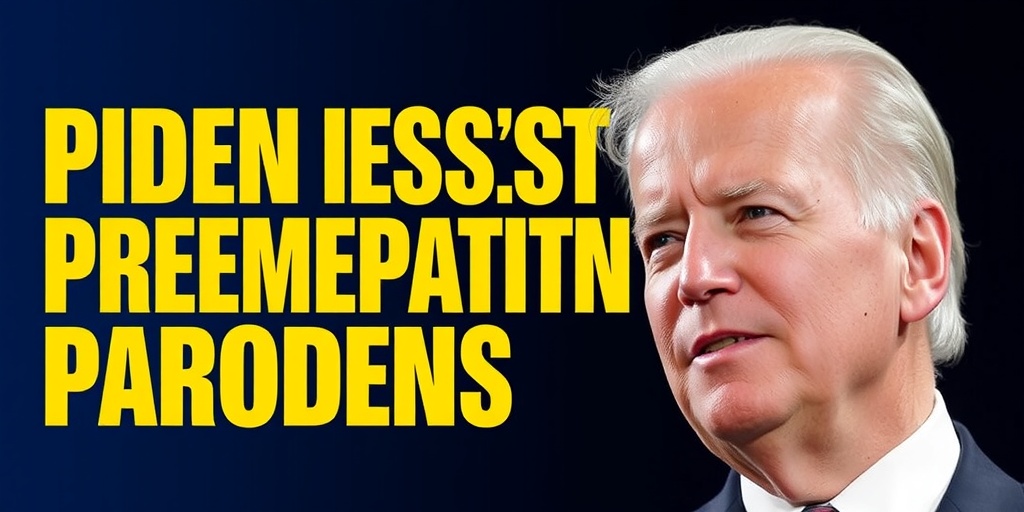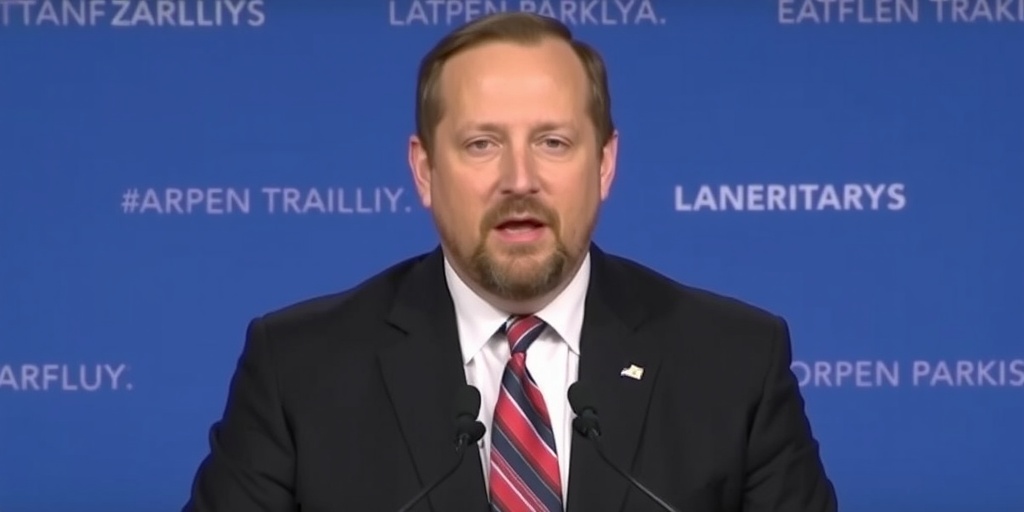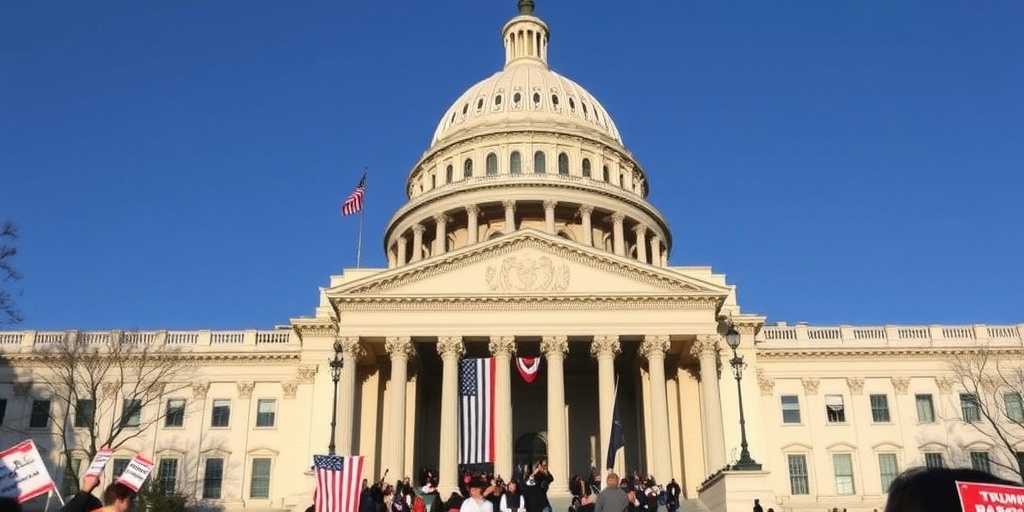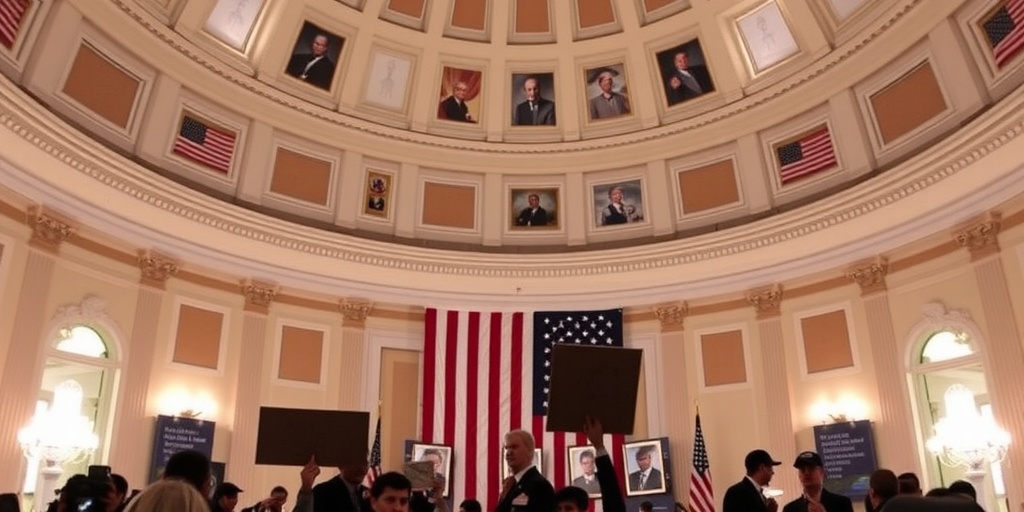Now Reading: Biden Issues Preemptive Pardons to Shield Against Trump’s Retaliation
-
01
Biden Issues Preemptive Pardons to Shield Against Trump’s Retaliation
Biden Issues Preemptive Pardons to Shield Against Trump’s Retaliation

Biden Issues Pre-Emptive Pardons to Shield High-Profile Trump Adversaries Ahead of Transition
In a striking move hours before leaving office, President Joe Biden utilized his constitutional authority to issue pre-emptive pardons for several prominent individuals who have been outspoken critics of former President Donald Trump. This unprecedented decision seems aimed at protecting these individuals from a potential campaign of retribution that Trump has vowed to pursue once he assumes the presidency on January 20.
Among the recipients of these pardons are notable figures such as General Mark A. Milley, former chairman of the Joint Chiefs of Staff; Dr. Anthony S. Fauci, the well-known government scientist who played a significant role in advising the Trump administration during the COVID-19 pandemic; and members of the bipartisan House committee that investigated the January 6, 2021, insurrection at the Capitol, including former Representative Liz Cheney, a Republican from Wyoming.
Biden explained his reasoning in a statement, emphasizing the extraordinary circumstances that led to his decision. "Baseless and politically motivated investigations wreak havoc on the lives, safety, and financial security of targeted individuals and their families," he stated. Biden expressed concern over the profound impact of potential investigations and prosecutions on the reputations and financial well-being of individuals who have done nothing wrong.
By pre-emptively pardoning these individuals, Biden has effectively transformed the president’s clemency power into a form of protective security against what he perceives to be politically motivated vengeance from the incoming administration. Historically, such an extensive and overt use of executive clemency has not been employed to protect individuals against a successor’s potential misuse of power.
Biden’s advisors noted that his decision was influenced by Trump’s repeated threats during his campaign to prosecute various adversaries, including Democrats, law enforcement officials, former intelligence officers, and even members of his own party who did not support him. In particular, Cheney and Fauci have been vocal targets of Trump and his allies, with the former president even suggesting that he would appoint a “real special prosecutor” to target Biden and his family.
Earlier, Biden had issued a pardon to his son, Hunter Biden, related to potential crimes committed over an 11-year period, but notably, he refrained from including himself or other family members in the recent round of pardons.
While some individuals welcomed the pardons, not all who might be considered recipients have embraced the idea. For instance, former Representative Adam Kinzinger, who served alongside Cheney on the January 6 committee, spoke out against the notion of accepting a pardon, stating that doing so could imply guilt: "As soon as you take a pardon, it looks like you are guilty of something,” Kinzinger remarked in a recent CNN interview. He emphasized that he felt he was guilty of nothing but telling the truth about the events surrounding January 6 and criticized Trump’s inaction during the Capitol attack.
Critics of Biden’s strategy have raised concerns about the potential precedent set by granting pardons in situations where no charges have been brought against the individuals. Senator Adam B. Schiff, a Democrat from California who led impeachment proceedings against Trump, cautioned against such broad applications of pardons, voicing that it could normalize the practice of outgoing presidents issuing sweeping clemency to members of their administration.
Biden’s actions mark a significant and controversial use of the pardon power, which some legal experts argue is within his rights. The closest historical parallel could be drawn to President Gerald R. Ford’s pardon of Richard Nixon in 1974, though this case involved a direct threat of prosecution stemming from the Watergate scandal, unlike the current situation where Biden is taking measures to prevent potential future actions by Trump.
Despite Trump’s often vague threats of retaliation, his selection of highly partisan allies to lead critical departments like the Justice Department and the FBI raises alarm among his adversaries. For instance, Trump’s choice for attorney general, Pam Bondi, and his pick for FBI director, Kash Patel, have both made statements suggesting an aggressive stance against Trump’s critics. This has led many to believe that Trump is serious about pursuing reprisals against those who opposed him during his presidency.
Trump’s history of public vitriol directed at figures like Cheney, Fauci, and Milley suggests that the pre-emptive pardons from Biden could be a necessary bulwark against potential vindictive actions. As the political landscape continues to shift, the implications of Biden’s decision will likely reverberate in the coming months, raising questions about the boundaries of presidential power and the nature of political accountability in America.
Stay Informed With the Latest & Most Important News
Previous Post
Next Post
-
 01New technology breakthrough has everyone talking right now
01New technology breakthrough has everyone talking right now -
 02Unbelievable life hack everyone needs to try today
02Unbelievable life hack everyone needs to try today -
 03Fascinating discovery found buried deep beneath the ocean
03Fascinating discovery found buried deep beneath the ocean -
 04Man invents genius device that solves everyday problems
04Man invents genius device that solves everyday problems -
 05Shocking discovery that changes what we know forever
05Shocking discovery that changes what we know forever -
 06Internet goes wild over celebrity’s unexpected fashion choice
06Internet goes wild over celebrity’s unexpected fashion choice -
 07Rare animal sighting stuns scientists and wildlife lovers
07Rare animal sighting stuns scientists and wildlife lovers





















